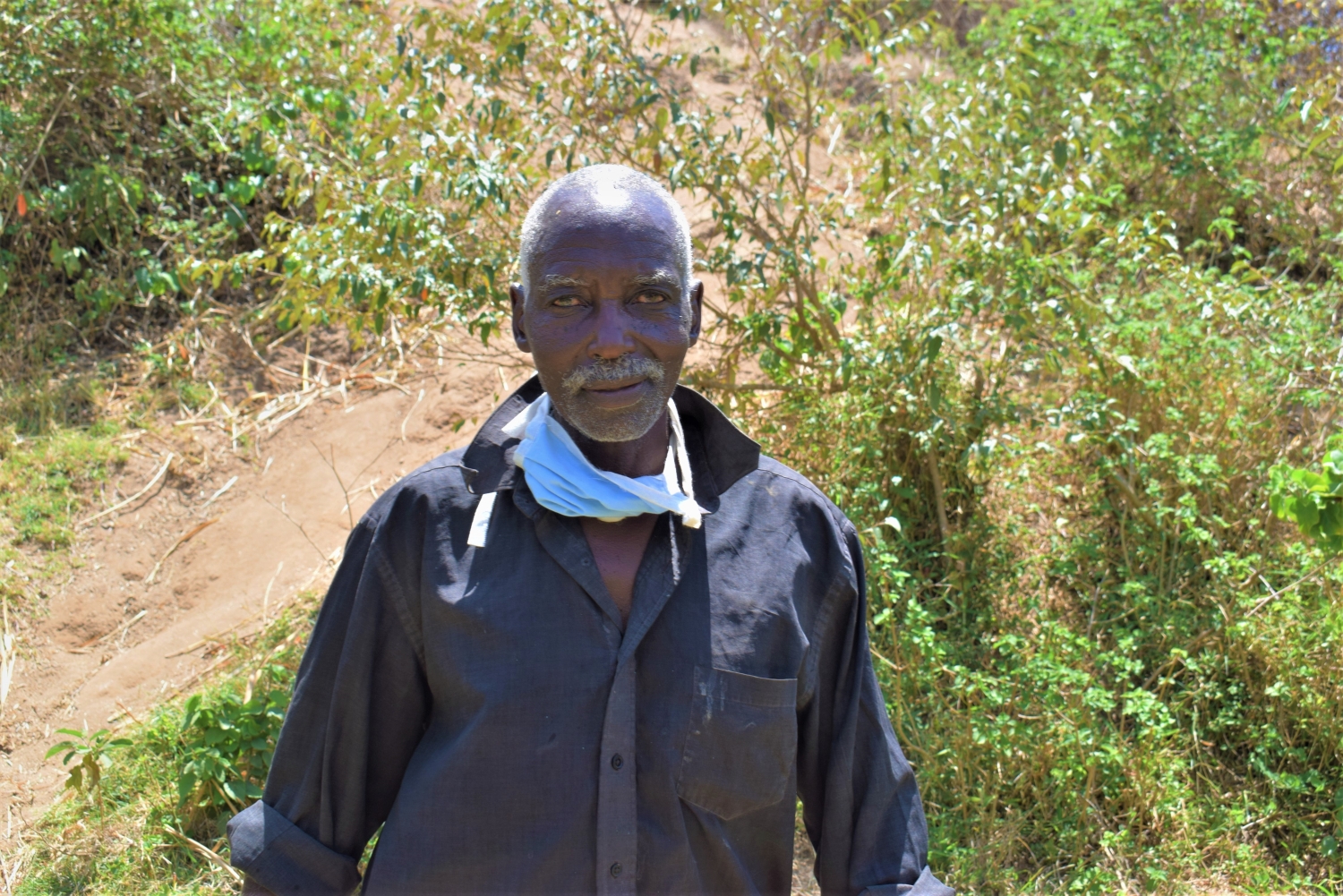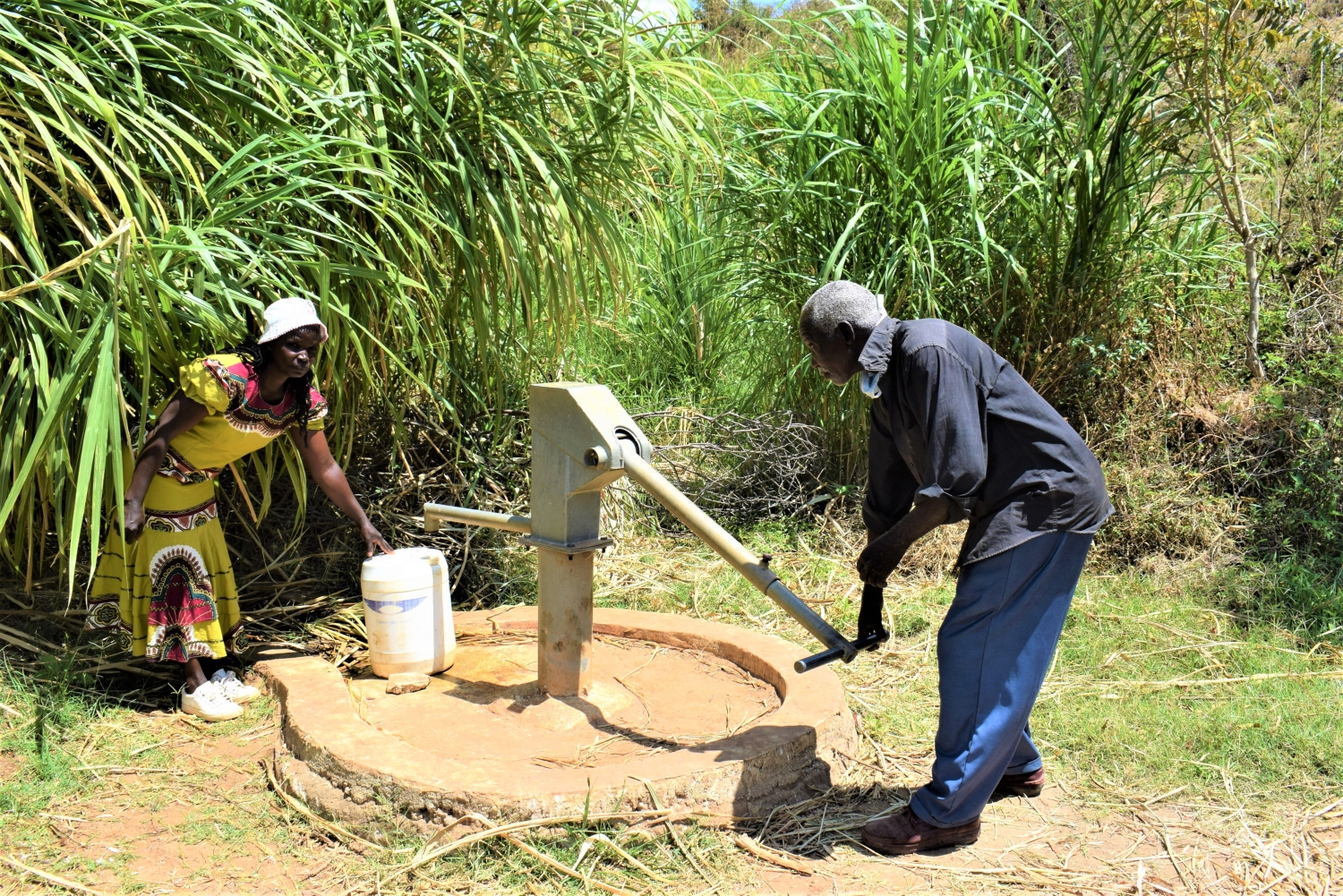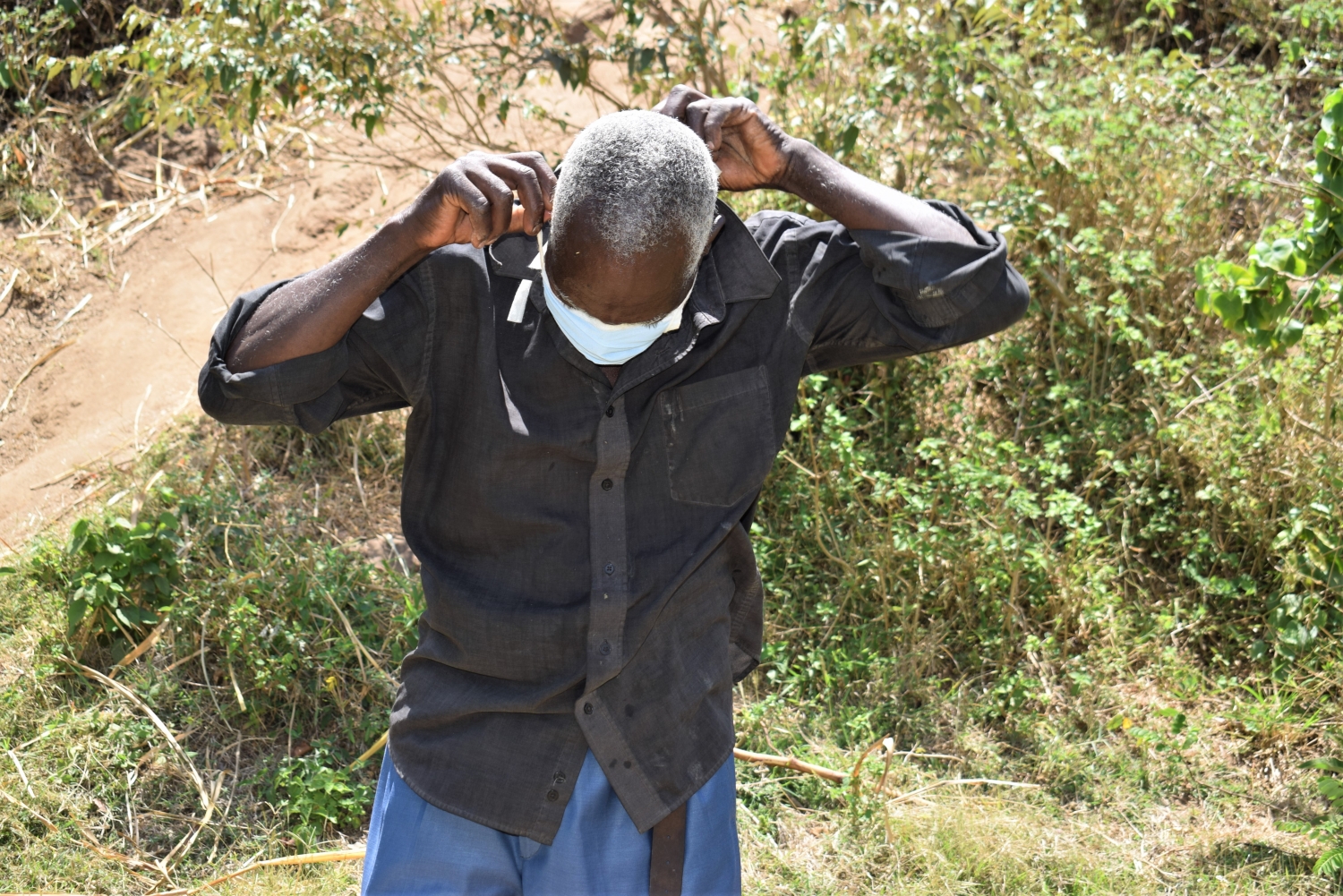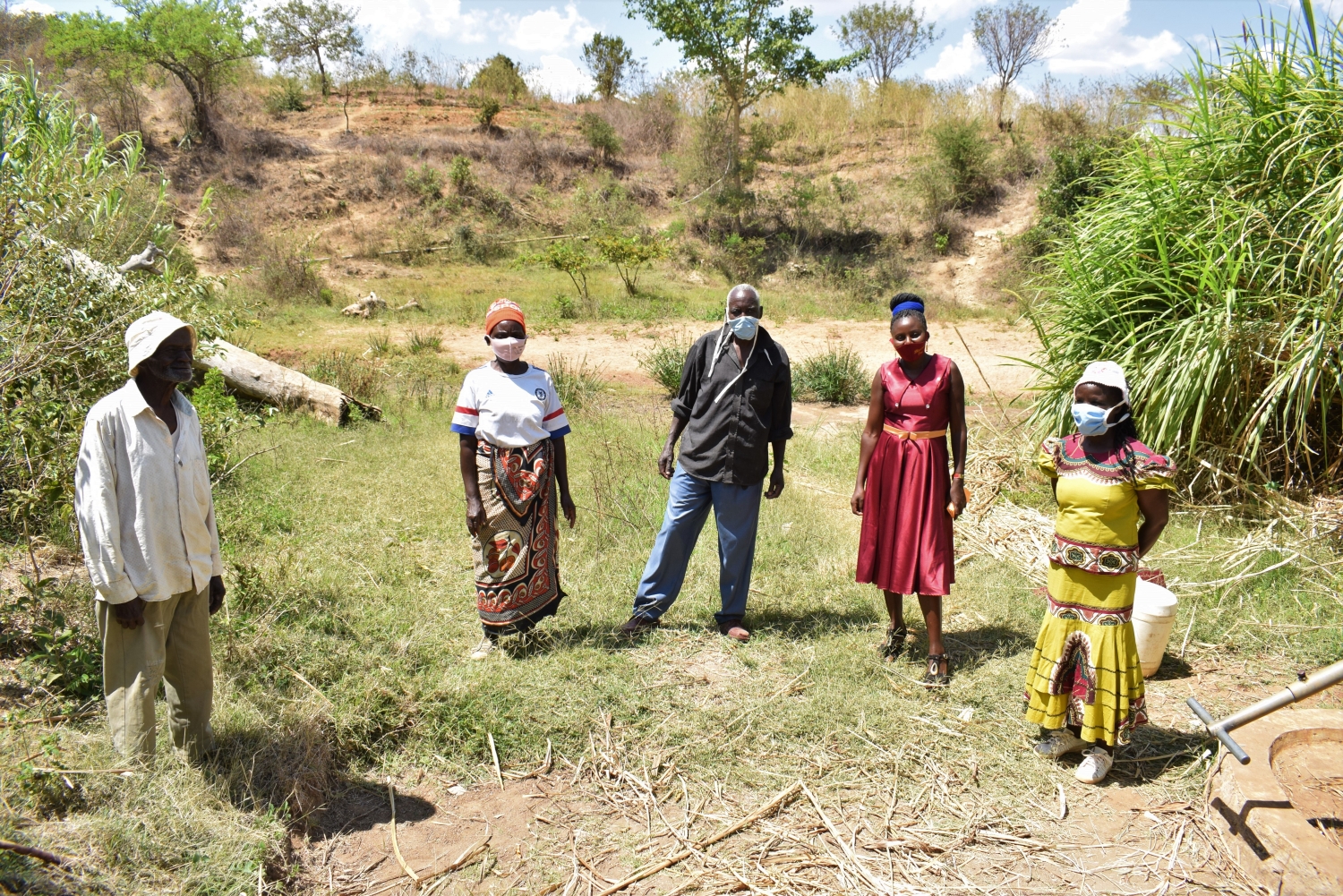Patiently waiting for a return to normal life

Thomas Mwonga is looking forward to life returning to normal.
At 71, Thomas is still not ready to retire, but the onset of the COVID-19 pandemic means that opportunities to work are few and far between. Our team recently visited Ilingoni, Kenya, to conduct a COVID-19 prevention training and monitor their well and sand dam. While there, we spoke with Thomas about the water point and how the pandemic impacts his and his family’s life.
“The economy’s stability is still wavering as it has not yet fully normalized. The casual labor jobs that we relied on have still not yet picked up,” he said.
Thomas lives in southeastern Kenya, a semi-arid region of the country that does not frequently get rain. Many people here make a living both farming and carrying out various informal jobs such as construction. To limit the spread of COVID-19, the Kenyan government issued a series of mandates, including a nationwide curfew. The efforts are working, and the number of cases is on a steady decline since November, making it hard for life to return to normal.
“I highly rely on casual labor jobs to earn an income, and it has been quite difficult during this pandemic. At times, I would lack money to purchase food from the marketplaces, and we would have to get a loan from nearby shops,” Thomas explained.

Thomas fetches water
“I have a sick child at home, and I had to struggle to earn some income to provide a healthy diet for my child. It was not easy. Businesses were not flowing as usual, and this made it difficult for my other daughter to send remittances to support us.”
Despite the challenges, Thomas remains optimistic and appreciates the efforts by the government and fellow community members to prevent the spread of COVID-19. He hopes that the country can return to normal soon.
“I am content with how the government is handling the ongoing matters regarding COVID-19. I hope the situation gets better and everything normalizes completely. I really look forward to the vaccine being distributed,” he said.

Thomas puts on his mask
The following are excerpts from our interview with Thomas. We asked him about the impact of the well and sand dam on his life, what his community is doing to prevent COVID-19 from spreading, and more.
What is one thing that has changed in your community since the completion of the water project?
A lot has changed since the installation of this water point. Fetching water has become easier, and it has enabled us to engage in farming activities. We use less time to fetch water than before, when we had to walk long distances and make long queues to draw water. Our livelihoods have improved because we no longer have to strain to get water.
How has having a clean water point helped you through the pandemic so far?
Having a clean water point has been very helpful to me. I have been able to fetch water for drinking, cooking, and washing hands. We have managed to plant trees and vegetables for use at our homes such that we do not have to incur any costs in catering for our meals. The distance we cover to fetch water has also reduced, saving us from contact with crowds, which would expose us to risks of contracting the virus.
Since the outbreak of COVID-19 in Kenya, has fetching water changed for you because of restrictions, new rules, or your concerns about the virus?
Yes, fetching water has changed because of the restrictions and new rules. Nowadays, we wash hands before using the hand pump, we wear masks, and we observe social distancing whenever we are at the shallow well fetching water.

Thomas (center) participates in community COVID-19 training.
What other challenges are you experiencing due to the COVID-19 pandemic?
It is quite uncomfortable to wear a mask at all times as we were not used to such practices. Traveling from one area to another is very difficult as we are afraid of contracting the virus, owing to the fact that the second outbreak wave has set in.
What hygiene and sanitation steps have you and your community taken to stop the spread of the virus?
We have taken several steps to contain the spread of the virus, including:
-Educating our children to wear masks at all times;
-Washing hands at all times; and
-Observing social distancing to ensure we are not in close contact to contract the virus.
Like most governments worldwide, the Kenyan government continues to set and adjust restrictions both nationally and regionally to help control the spread of the virus.
What restriction were you most excited to see lifted already?
I was excited about the opening of churches and the ban of age limits on attendees, which allowed everyone to gather at the churches as long as we observed the government’s guidelines. The opening of schools was great as it allowed for our children to get back to learning. They would be busy studying rather than idling around.
What has been the most valuable part of the COVID-19 sensitization training you received from our team?
The most helpful part about the COVID-19 sensitization training has been on how to wash our hands, observing social distancing, wearing masks, and how to live with others while avoiding any close contact such as handshakes or hugs, as this was our norm.
Have you experienced any challenges getting food?
It was difficult getting food because I had no job at the time. Getting casual jobs was very hard. We relied on the little food that we had on our farms, and we had to ask for food on debts from our neighbors around or from shops.
This post is part of a new series by The Water Project meant to highlight the perspectives and experiences of the people we serve and how the COVID-19 pandemic is impacting them. We invite you to read more of their stories here.
Home More Like ThisTweet